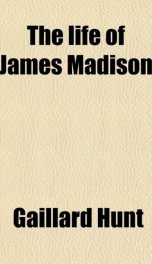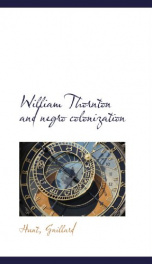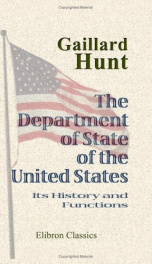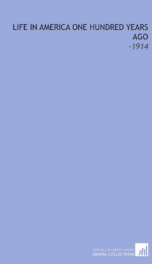the life of james madison

Purchase of this book includes free trial access to www.million-books.com where you can read more than a million books for free. This is an OCR edition with typos. Excerpt from book: CHAPTER III FAMILY INFLUENCES In Embracing, as he did at the beginning, the patriot cause, Madison was unhampered by any regrets that might have come from a living family connection with England. His second cousin James went to England a few years before the Revolution to be ordained as a priest, the voyage being necessary, because Virginia was under the spiritual jurisdiction of the Bishop of London and had no bishop of her own. He did not remain long, and formed no strong English ties. He was the only member of the family who received any part of his education outside of the colonies. England was not, therefore, home to the Madisons as it was to so many other American families. They were purely a colonial family, almost coeval with the Anglo-Saxon settlement of the New World, and the record did not extend beyond that. "Captain Isaac Maddyson," an artisan, one of the colonists of 1623, and mentioned in John Smith's history as a good Indian-fighter, was the first Madison to reach the New World. A hundred years later, November 15, 1723, his descendant, Ambrose Madison,f in conjunctionwith Thomas Chew, patented 4,675 acres of land in that part of Spottsylvania County which became in 1732 the county of Orange. Ambrose Madison dying in 1732, his eldest son James, the father of the subject of this book, inherited the interest in the land, and by purchases at different times acquired the whole of it. This was the estate which came subsequently to be known as Montpelier, and upon which James Madison, the son, spent his whole life. As it happened, however, he was not born there. Mr. Gay in his " Life of Madison," denies that Isaac Madison was an ancestor of the Virginia Madisons, but Mr. Rives, whose source of information was the family tradition, asserts that he was. t Jo...
Info about the book
Author:
Series:
Unknown
ISBN:
1477586806
Rating:
3.5/5 (1)Your rating:
0/5
Languge:
English
Users who have this book
Users who want this book
What readers are saying
What do you think? Write your own comment on this book!
write a commentif you like the life of james madison try:
Do you want to read a book that interests you? It’s EASY!
Create an account and send a request for reading to other users on the Webpage of the book!






